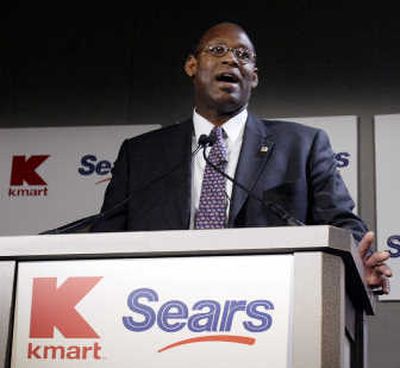Black CEOs see ranks decline

NEW YORK – It’s getting lonelier at the top for black CEOs.
Only four blacks will be left running Fortune 500 companies after Stan O’Neal’s abrupt retirement from the top spot at Merrill Lynch & Co. last week and Time Warner Inc. Dick Parsons’ announcement Monday that he will retire at the end of the year.
That leaves Aylwin Lewis at Sears Holding Corp., Kenneth Chenault at American Express Co., Ronald Williams at Aetna Inc. and Clarence Otis at Darden Restaurants Inc. as the only black chief executives among this list of the nation’s largest companies.
To some, the departures of O’Neal and Parsons underscore that all CEOs, whatever their race, have a short shelf life.
“In the best situations, these are not jobs you hold on to for more than five to seven years,” said Alfred Edmond Jr., editor-in-chief of Black Enterprise magazine. “The bulletproof CEOs of the ‘80s – those days are long gone, even for white men.”
Twenty years from now, Edmond predicts, there will be double the number of black CEOs, but that will still bring their total to fewer than a dozen. “The numbers are so small that any improvement will seem like a giant leap forward,” he said.
On his short list are John Thompson, CEO of Symantec Corp., which is just shy of entering the Fortune 500; Ursula M. Burns, president of Xerox Corp., and Don Thompson, president of McDonald’s USA at McDonald’s Corp.
While the numbers now may be dispiriting, “10 or 15 years ago, we couldn’t have had this conversation, because there was no one to talk about,” Edmond said.
The reasons why so few blacks reach the top ranks are tangled.
“When African-Americans enter the corporate arena, they enter with a trust deficit,” said Jessica Faye Carter, author of “Double Outsiders: How Women of Color can Succeed in Corporate America.”
“There’s a perception they have to overcome, even if they have a law degree from Harvard or an MBA from Harvard,” she said.
Blacks are also likely to end up in jobs that don’t have an advancement track. A study of workers in Los Angeles, Chicago, New York and the San Francisco area by the University of California, Berkeley’s Center for Labor Research and Education found that more than half of black workers were in jobs that don’t pay well, don’t provide retirement and health benefits and don’t offer avenues for advancement.
And when blacks enter corporate America, they often find it unfriendly.
A survey of 19,000 people conducted by The Level Playing Field Institute found that people of color are more than twice as likely as heterosexual white men to have left a job because of “unfairness,” such as being passed over for a promotion due to personal characteristics, being stereotyped or being subjected to offensive jokes.
Barron Harvey, dean of the school of business at historically black Howard University in Washington, D.C., said the school’s message to its students is the same as at any quality business school.
“They must be very well-prepared, they must be calculated in the risks they take, they must be achievers in any and all projects they undertake,” he said.
The school also emphasizes that students should assume, until they have information to the contrary, that all behavior they encounter at work is positively intended.